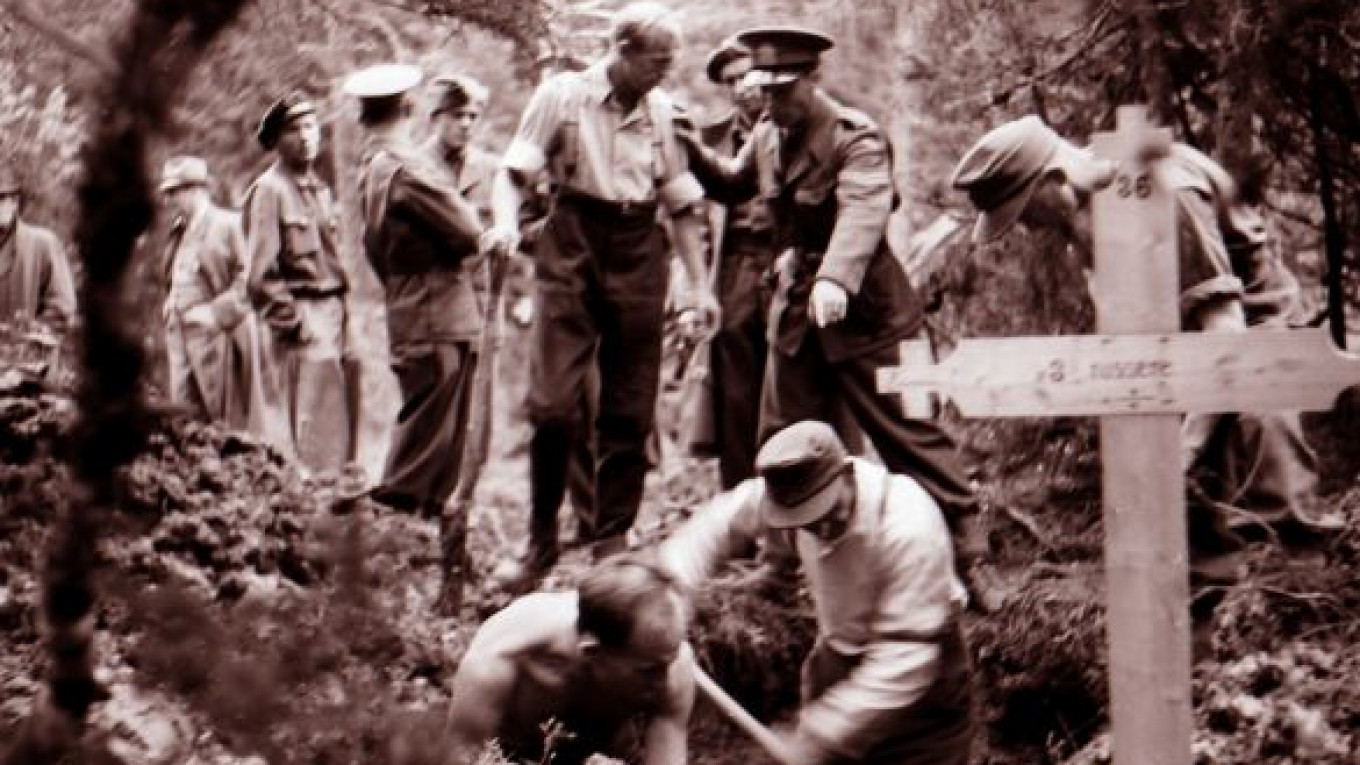There are six Ivanovs listed on the web site: Grigory, Semyon, Pavel, Vasily, Pyotr and Alexei.
Ivanov is one of Russia’s most common surnames, so it is unlikely that the six were relatives. What they do have in common though, is that all of them died on Norwegian soil between 1942 and 1945, where they remain to this day.
The Ivanovs are listed on the Krigsgraver web site — launched earlier this year — which lists basic information about close to half of the roughly 13,000 Soviet citizens who died in prison camps in Norway during World War II.
The database is part of a project called “Krigsgraver Soker Navn,” or “War Graves Seek Names.”
“We started the project about one year ago, compiling the data about prisoners and where they were held, from Norwegian, German and Russian archives,” said Marianne Neerland Soleim, project manager for the team that has created the database. “So far we’ve added 3,500 new names to what we had before, but it’s been difficult work, particularly as the Germans and Russians often have place names spelled wrongly — they wrote them down just as they heard them.”
About 100,000 Soviet prisoners of war were held captive in Norway from 1940 to 1945, while it was occupied by Germany.
The prisoners were used as captive labor to build railroads, roads, fortresses and aerodromes for the Nazi war effort, Soleim said. “The conditions in the camps were very hard, especially in northern Norway. Sometimes the death rates were as high as 90 percent, though some of the commandants treated the prisoners a little better.”
Prisoners of war were taken to Norway after being captured in fronts across Europe, many during fighting in Ukraine, Belarus or in Yugoslavia. The vast majority were Soviet citizens, and the database, which has been created with funding from the Norwegian government, can be searched in Russian, Norwegian or English.
POWs received mixed treatment from locals. “Some Norwegians treated them well,” Soleim said. “But some told the Germans if they found escaped prisoners.”
At the end of the war, the Norwegian government deported the 84,000 surviving Soviet prisoners back to the Soviet Union. About 30 managed to avoid being sent back and remained in Norway.
One of those who never returned is Alexei Perminov, who attended the launch of the database in Oslo earlier this year.
“This database is important for relatives of the prisoners, so they can find out what happened,” he said. “It has importance for those who are living. If you were a son of someone who died in the camps you’d want to know more.”
Perminov, 88, is currently writing memoirs about his life in the camps and how he avoided the forced return to the Soviet Union.
Vasily Vasilyevich Tolochka, deputy general director of the organization War Memorials, welcomed the site, although he said Russian site www.obd-memorial.ru, an attempt to collate all those dead or missing in action during the war, sometimes has more information.
“However, the Norwegian database gives extra information as it even contains information about where POWs died,” he said. “It’s good that there is this database.”
“War Graves Seek Names” is online at .
A Message from The Moscow Times:
Dear readers,
We are facing unprecedented challenges. Russia's Prosecutor General's Office has designated The Moscow Times as an "undesirable" organization, criminalizing our work and putting our staff at risk of prosecution. This follows our earlier unjust labeling as a "foreign agent."
These actions are direct attempts to silence independent journalism in Russia. The authorities claim our work "discredits the decisions of the Russian leadership." We see things differently: we strive to provide accurate, unbiased reporting on Russia.
We, the journalists of The Moscow Times, refuse to be silenced. But to continue our work, we need your help.
Your support, no matter how small, makes a world of difference. If you can, please support us monthly starting from just $2. It's quick to set up, and every contribution makes a significant impact.
By supporting The Moscow Times, you're defending open, independent journalism in the face of repression. Thank you for standing with us.
Remind me later.






